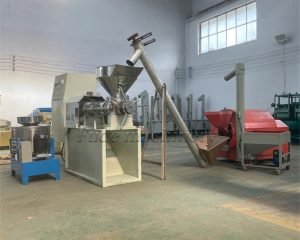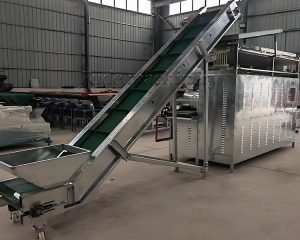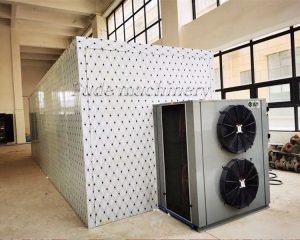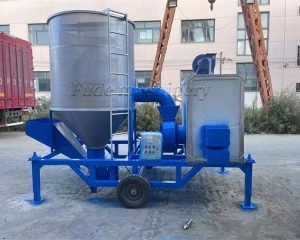How to Make Vegetable Oil?
Multi oil processing of vegetable oil
Vegetable oil has wide variety of uses when it comes to food for example it is used in making cooking oil, mayonnaise, salad dressing, and many more. Also, it is involved in the production of non-food substances such as fatty acids, soaps, resin, detergents, varnish, lubricants and plastic. With technology people have greatly shifted from traditional extraction processes which were tedious, slow, and quite messy to modern extraction methods. Increased market demand also contributed much to this revolutionary shift and today you can extract vegetable oil from your home and use it in making detergents or sell it to other manufacturing companies.
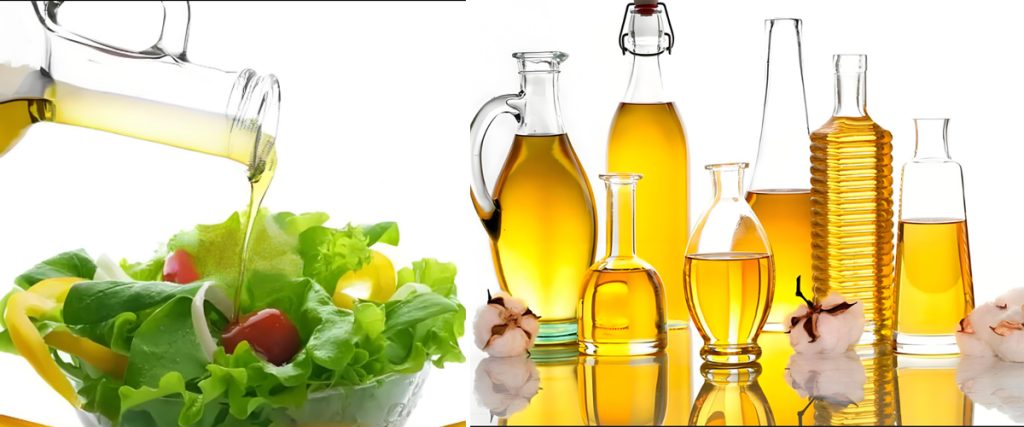
Shelling:
- Peeling and pressing oil from plants is a crucial step in the processing of vegetable oil, aimed at removing the outer shell and impurities from the oil, improving oil yield and quality. According to different types of oil and processing requirements, shell stripping methods include friction rolling method, impact method, shear method, and extrusion method. For example, the disc sheller is suitable for shelling cottonseeds and peanut fruits, while the centrifugal sheller is used for shelling sunflower seeds. After peeling, the oil needs to undergo pre-treatment processes such as crushing, softening, and rolling to destroy cell tissue and improve oil extraction efficiency. Finally, the oil is extracted by pressing or leaching, and refined through processes such as degumming, deacidification, decolorization, deodorization, etc., to obtain the finished oil product.
Pressing:
- The heated substance is directed inside a screw press which continuously raises the pressure and oil is pressed out from slots within the barrel of vegetable oil machine where it is easily recovered. However, this stage is best for seeds that have huge amounts of oils, those with little oil do not undergo this stage.
Refining:
- Refined vegetable oil refers to edible oil products that meet national standards by using a series of processing techniques with refining equipment to remove impurities, pigments, odors, and other unfavorable factors from the original vegetable oil, thereby improving its purity, stability, and taste. The processing of refined vegetable oil usually includes steps such as degumming, deacidification, decolorization, deodorization, etc. These steps aim to remove impurities, proteins, free fatty acids, pigments, wax, etc. from the oil to improve its transparency, stability, and taste.
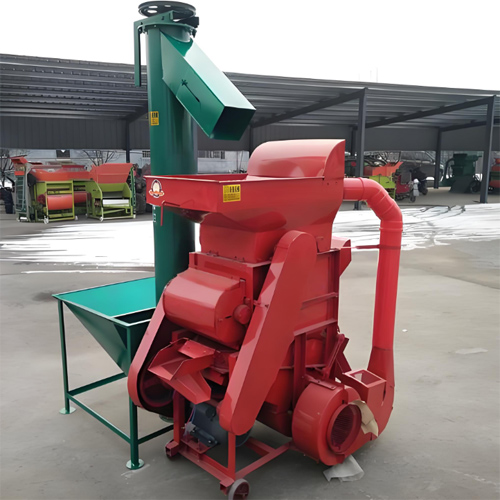

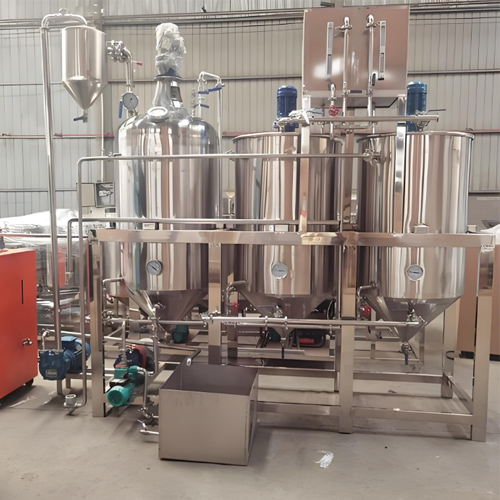
The standard cooking oil bottle contains 99% of vegetable oil and this oil is extracted from various plants (commonly referred as seeds) such as sunflower, safflower, sesame, cotton and palm kernel. The oil is also extracted from nuts such as peanut, almond, walnut and soybeans. Few vegetable oils do not need heavy processing procedures for example peanut and olive can be cold-processed that extracts a light, tasty oil that can help in your cooking. However, this process may not be sufficient for most vegetable oils since it may leave some substances in the oil making it look dirty and have a bitter taste. That is why vegetable oils need to be extracted using highly specialized machines that will ensure the seeds undergo the all necessary stages to produce the best quality.
What types of oil are used for pressing vegetable oil?
There are many types of oilseeds for pressing vegetable oil, and the selection is mainly based on their oil content and processing technology. The pressing method is applicable to oilseeds with high oil content, such as sunflower seeds, rapeseed, sesame, peanut, etc. These oilseeds can release oil well during the pressing process, while retaining their natural flavor and nutrients. In addition, olive oil, camellia oil, walnut oil, flaxseed oil, palm oil, etc. are often extracted by pressing. The pressing method is a physical pressing method. With the help of external mechanical force, the oil is squeezed out from the oil plant. The process is simple, but the residual oil rate of Youbing (Deep-fried round and flat dough-cake) is high, usually around 15%.
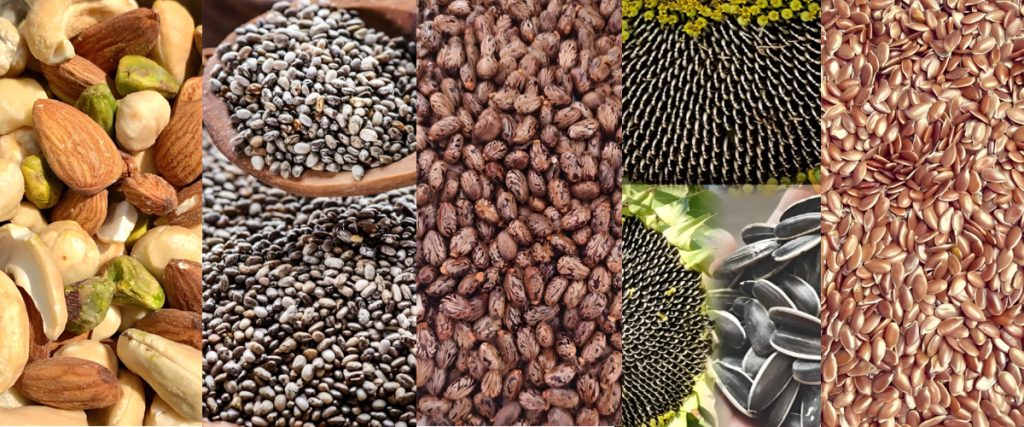
What are the advantages of plant oil extraction?
Plant oil extraction has multiple advantages, mainly reflected in the following aspects:
- Preserving Nutritional Components: Plant oil extraction, especially cold pressing technology, can effectively preserve the active ingredients in plant oil, such as vitamin E, sterols, gamma linolenic acid, and functional food pigments. These ingredients are beneficial to health, helping to resist oxidation, lower cholesterol, enhance immunity, and more. In contrast, traditional hot pressing techniques may damage these nutrients.
- Improving oil quality: Plant oil produced by cold pressing technology has a clear color, light taste, can be stored for a long time without additives, and has high antioxidant activity. In addition, cold pressed oil has a high oil yield and a high content of unsaturated fatty acids in the oil, which helps to maintain the natural flavor and nutritional value of the oil.
- Health and safety: Plant oil itself contains various beneficial components for the human body, such as vitamin E and plant sterols, which may be partially removed during the refining process. However, cold pressing technology can avoid the production of harmful substances (such as trans fatty acids) caused by high-temperature processing, thereby improving the safety of edible oil. In addition, cold pressed oil does not require the addition of chemical additives, reducing the risk of chemical residues.
- Wide applicability: There are various extraction methods for vegetable oil, including pressing, leaching, and enzymatic extraction. Among them, the pressing method is applicable to oilseeds with high oil content, such as sunflower seeds, rapeseed, sesame, peanut, etc. In addition, vegetable oil can also be used for non edible products such as cosmetics, fungicides, and preservatives.
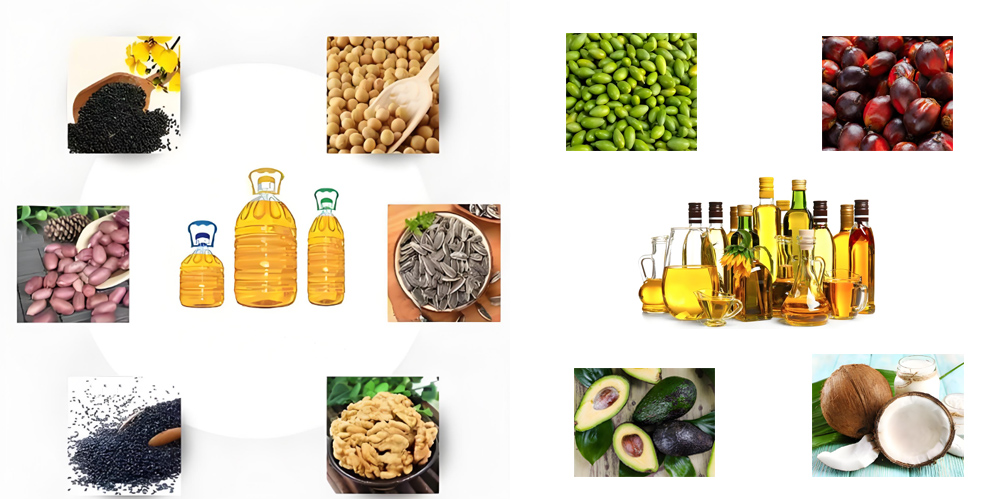
Plant oil extraction not only has significant advantages in nutrient retention, health and safety, and environmental protection and energy conservation, but also improves economic benefits and product added value, making it an important development direction for modern plant oil processing.
Purchasing oil processing equipment from Zhengzhou Fude Machinery not only improves production efficiency and product quality, but also provides excellent after-sales service and technical support, making it an ideal choice for the oil processing industry.
Related recommendations
-
How to start a vegetable oil pressing business?
527If you want to join the field of vegetable oil pressing and start your entrepreneurial journey, you first have to understand how to start a vegetable oil pressing business; and in preparation, you need to identify the main differences between oil...
View details -
What are the advantages of a large-scale tea seed peeling machine production line
480The large-scale tea seed shelling machine integrates tea seed shelling and shell kernel separation, and has multiple significant features and advantages.
View details -
How does a box dryer work
594Box type dryers are widely used in various fields, such as drying clothes at home, industrial sludge treatment, fruit and vegetable drying, etc
View details -
What is the purpose of a grain dryer
463Grain dryers are not limited to the agricultural sector, but have also expanded to the industrial and commercial sectors.
View details
 Oil Press Equipment and Oil Refining Machinery for Sale – Start Your Oil Press Business
Oil Press Equipment and Oil Refining Machinery for Sale – Start Your Oil Press Business
